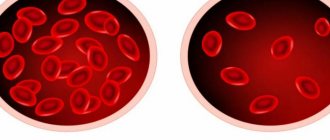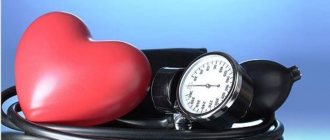Medicines for dizziness for older people are prescribed as symptomatic therapy in order to normalize general well-being.
There is an extensive list of drugs from different pharmacological groups that improve cerebral circulation and the functions of the vestibular apparatus, and have a beneficial effect on the functioning of the great vessels. Medicines in this category are prescribed only after a comprehensive examination of the central nervous system to determine the causes that provoke attacks of dizziness.
Causes of dizziness in old age
For most older people, the periodic occurrence of severe or moderate dizziness is a familiar symptom that occurs spontaneously after a sudden change in body position or physical activity. Such a state of the body is always associated with the presence of concomitant diseases of the central nervous system and blood vessels that feed brain tissue.
According to medical statistics, about 30% of men and women over 60 years of age suffer from attacks of dizziness. Modern pharmacology offers a whole list of effective medications for dizziness of various etiologies.
The appearance of this symptom is associated with the influence of the following causative factors:
- cerebrovascular disorders caused by diseases of the blood vessels that supply brain tissue;
- previous stroke;
- side effect from taking a large number of medications at the same time;
- unstable blood pressure, which is characterized by a sharp narrowing and expansion of the walls of the great vessels;
- negative changes in the structure of the vestibular system that occur due to the natural aging process;
- Parkinson's disease;
- chronic osteochondrosis of the cervical spine;
- diabetes;
- Alzheimer's disease;
- nervous tension and stressful situations;
- inflammation of the meninges caused by meningococcal infection;
- arrhythmia and other diseases of the cardiovascular system;
- cerebrovascular accident;
- poor and unbalanced nutrition, which causes an acute deficiency of vitamins and minerals necessary for the stable functioning of the central nervous system;
- hypertonic disease;
- positional paroxysmal vertigo of a benign type (in this case, pathological symptoms arise due to degenerative changes in the structure of the inner ear);
- hypotension;
- brain tumors that are benign or oncological in nature;
- atherosclerosis of blood vessels.
Determination of the above reasons that cause attacks of dizziness is carried out through a comprehensive diagnosis of the central nervous system, heart, vestibular apparatus and blood vessels. Based on the results of the study, the neuropathologist selects the drug that is advisable to take for dizziness of a specific nature.
How to help an older person if he has dizziness
To prevent a person from falling during dizziness, you need to do the following:
- Help him walk to the bed and lay him on his back.
- If the older person's limbs are cold, warm them with slow warming movements.
- Apply a cold water compress to your forehead.
- Provide air access by opening the window.
- Give a mug of warm sweet tea to drink.
- If an older person is taking medication for vertigo, they should take it.
In some cases, inhaling ammonia vapor will help relieve dizziness.
Lists of effective and safe drugs for older people
Medicine for dizziness for older people (the list of medications indicated for use is compiled by the attending physician) is selected individually depending on what disease of the central nervous system or blood vessels was diagnosed in the patient.
In this case the following can be used:
- nootropic drugs;
- muscle relaxants;
- anti-inflammatory drugs;
- multivitamin complexes.
Nootropics
The main purpose of nootropic drugs is to improve cerebral circulation and central nervous system functions. The table below provides a list of the most effective and safe medications in this category.
| Name | Characteristics of the drug |
| Vinpocetine | Vinpocetine is a drug that improves metabolic processes occurring in brain tissue. The active component of this drug is the chemical vinpocetine at a dosage of 5 mg per tablet. This medication is indicated for older people who suffer from dizziness caused by vascular diseases or cerebrovascular accidents. Therapy with this drug is carried out over a continuous course with a minimum duration of at least 2 months. Vinpocetine should be taken 1-2 tablets 3 times a day. Within 1 year, you can take 2-3 treatment courses with this medication. It all depends on the type of disease and the severity of dizziness attacks. The average cost of this drug is 40 rubles. for 50 tablets |
| Glycine | Glycine is an effective and absolutely safe nootropic drug that improves blood supply to the brain and has a beneficial effect on the functions of the central nervous system. The active ingredient of this drug is microencapsulated glycine in a dosage of 100 mg per tablet. This medicine is taken 1 tablet 2 to 3 times a day with a therapeutic course duration of 2-4 weeks. The medication is taken by dissolving the tablet inside the mouth. Elderly patients with dizziness that occurred after an ischemic stroke of the brain are advised to take 1000 mg of Glycine in the first 6 hours. The tablets are dissolved at intervals of 25-30 minutes. The average cost of this medication ranges from 29 to 41 rubles. per pack of 50 tablets. |
| Piracetam | Piracetam is a nootropic drug that comes in the form of red gelatin capsules. The active substance of this medication is the chemical compound piracetam at a dosage of 400 mg. This drug is used to treat elderly patients with signs of dizziness due to vascular diseases of the brain, central nervous system pathologies, and Alzheimer's disease. At the initial stage of therapy, Piracetam is prescribed in a dosage of 2 tablets 3 times a day before meals. As the attacks of dizziness disappear, the dose of the medication is reduced to 1 tablet, which should also be taken 3 times a day. The duration of the treatment course ranges from 2 weeks to 6 months. depending on the severity of the clinical case. The average cost of this drug is 65 rubles. for 60 tablets. |
A distinctive feature of nootropic drugs is that they normalize blood supply to the brain, stabilize the functions of the central nervous system, eliminate attacks of dizziness, but at the same time they have a minimum number of side effects.
Anti-inflammatory drugs for vascular compression
Elderly patients who suffer from pathological vascular conditions are prescribed non-steroidal anti-inflammatory drugs. Medicines in this category have an antiplatelet effect, eliminate signs of the inflammatory process, and improve general blood circulation in the body.
| Drug name | Characteristics of the drug |
| Aspirin Cardio | Aspirin Cardio is a drug in tablet form, which is produced on the basis of acetylsalicylic acid. The dosage of the main component is 100 mg per tablet. This medication normalizes general blood circulation, prevents the occurrence of dizziness, which is caused by thrombosis, diseases of the heart and blood vessels. Aspirin Cardio prevents the development of cerebral stroke. The dosage regimen for this drug involves taking 1 tablet once a day for 30 minutes. before meals, with plenty of liquid. The duration of treatment is determined by the doctor. The average cost of the drug Aspirin Cardio is 73-75 rubles. for 20 tablets. |
| Lornoxicam | Lornoxicam is an effective and safe non-steroidal anti-inflammatory drug with pronounced antiplatelet properties. The active component of this drug is the substance lornoxicam at a dosage of 8 mg in 1 bottle. This medication is created for intravenous and intramuscular administration. The use of Lornoxicam is indicated in those clinical situations where the appearance of attacks of dizziness is associated with compression of the walls of the great vessels. For example, in the presence of inflammatory processes in the cervical spine, where most of the large arteries supplying brain tissue pass. The dosage regimen for the drug Lornoxicam is intramuscular or intravenous administration of 8 to 16 mg of this drug. The duration of therapy is determined individually. The average cost of this medication is 532 rubles. |
Before prescribing anti-inflammatory drugs, it is imperative to establish the causative factors, the impact of which provoked swelling of the soft tissues and compression of the walls of blood vessels. The maximum therapeutic effect to eliminate dizziness is achieved with the combined use of NSAIDs and antiplatelet drugs.
Vitamin medicines
Medicine for dizziness for older people (the list of drug therapy used during treatment is compiled by a neurologist) is used to eliminate pathological symptoms, as well as combat the underlying disease that provokes it.
In medical practice, there are periodically cases where attacks of dizziness are associated with an acute deficiency of nutrients necessary for the stable functioning of the central nervous system. The table below lists vitamin and mineral complexes that normalize the functions of the cerebral cortex.
| Drug name | Characteristics of the drug |
| Medivitan | Medivitan is an effective and safe vitamin product with a combined composition. The active components of this drug are the following substances:
Medivitan is administered into the patient's body in the form of an injection solution by installing intravenous drips or performing intramuscular injections. The therapeutic dose of this drug is 5 ml 2 times a week. The duration of treatment is 4 weeks. In total, the patient should receive 8 injections of Medivitan. The average cost of this medication is 975 rubles.
|
| Folic acid | Folic acid is a medicine prescribed to an elderly patient with signs of vitamin B9 deficiency. A lack of this substance can lead to functional disorders of the central nervous system and dizziness. This medication is available in the form of tablets, which contain 1 mg of the active substance in the form of folic acid. The dosage regimen for this drug involves taking from 1 to 5 tablets per day. The total dosage depends on the severity of the vitamin B9 deficiency and the general health of the patient. The average duration of the therapeutic course is from 25 to 30 days, and the cost of this drug ranges from 23 to 46 rubles. for 50 tablets. |
| Multi-Tabs Classic | This is a balanced multivitamin complex, which contains all the vitamins and minerals necessary for stable functioning of the central nervous system, as well as preventing attacks of dizziness. This drug is taken 1 tablet 1 time per day immediately after meals or directly during meals. The price of this medication ranges from 346 to 455 rubles. |
Taking vitamin preparations can be carried out in combination with drug therapy with other drugs, the action of which is aimed at improving the functions of the brain and vestibular apparatus.
Muscle relaxants to reduce muscle tone
Medicine for dizziness for older people (the list of drugs that normalize cerebral circulation includes muscle relaxants) is selected taking into account the general condition of the patient. The table below lists medications that weaken the tone of muscle tissue, eliminate the effect of spasm, and also have a positive effect on the functions of the central nervous system.
| Name of the medication | Characteristics of the drug |
| Baklosan | Baklosan is a centrally acting muscle relaxant used for dizziness caused by brain tumors, cerebrovascular pathologies, and multiple sclerosis. The active component of this drug is the substance baclofen with a mass fraction of 10 and 25 mg per tablet, depending on the individual needs of each patient. At the initial stage of treatment, Baklosan is taken 5 mg 3 times a day. Over the next 3 days, the dosage of this medication is increased by 5 mg until a stable therapeutic effect is achieved. In this case, the elderly patient must be under constant supervision of medical personnel. The dosage of Baklosan is selected in such a way that the effect of reducing the tone of the walls of blood vessels is achieved, but the functions of the muscular system of the musculoskeletal system are not impaired. The average cost of this medication ranges from 247 to 260 rubles. for 50 tablets.
|
| Calmirex | It is a muscle relaxant that affects the centers of the brain responsible for muscle tone. The active component of this drug is the substance tolperisone hydrochloride with a concentration of 50 mg in 1 tablet. Calmirex is prescribed for use in elderly patients who suffer from attacks of dizziness resulting from pathologies of the cerebral vessels and the consequences of a previous stroke. This medication is prescribed in a dose of 1 tablet 3 times a day after meals. Calmirex should be taken with plenty of water. It is strictly forbidden to break the tablet or damage its protective shell. During treatment, the dosage regimen for this drug can be changed to 3 tablets 3 times a day. The duration of therapy is determined by the doctor individually. Calmirex is not recommended for use by elderly patients who suffer from severe kidney disease. The average cost of this medication ranges from 210 to 214 rubles. for 30 tablets. |
Taking muscle relaxants should only be done under the supervision of the attending physician or junior medical personnel. The above drugs are considered safe, but if the dosage is incorrectly selected, side effects may develop.
Antibacterial drugs
The use of antibacterial drugs in the fight against attacks of dizziness is advisable if the cause of their occurrence is meningococcal infections, which provoked inflammation of the cerebral cortex. The table below shows medications that can stabilize the patient's condition.
| Name of the medication | Characteristics of the drug |
| Ampicillin | Ampicillin is an antibacterial agent that belongs to the pharmacological group of semisynthetic penicillins. 1 tablet of this drug contains 1 g of active substance in the form of ampicillin sodium salt. A single dose of this medication is from 250 to 500 mg, and a daily dose is from 1 to 3 g. This amount of the drug is divided into 4 doses. The average cost of Ampicillin is 26 rubles. for 20 tablets. |
| Ceftriaxone | Ceftriaxone is a cephalosporin antibiotic with a dosage of 1 g in 1 vial. The medication is available in the form of a white powder, on the basis of which an injection solution is prepared for intravenous and intramuscular administration. The dosage of this drug is 1-2 g once a day, and its price is 22 rubles. for 1 bottle. |
The prescription of antibacterial agents is carried out by an infectious disease doctor after confirming the fact of inflammation of the meninges caused by meningococcal infection. As pathogenic microorganisms are destroyed, the patient’s well-being normalizes, and signs of dizziness go away.
The best drugs for dizziness in osteochondrosis
The most common cause of severe dizziness is spasm of the neck muscles, which disrupts local blood flow. Because of this, less blood and oxygen enter the brain, which creates an intense flow of pathological impulses that disrupt the functioning of important centers. This phenomenon occurs with osteochondrosis, spondylosis, and prolonged stress. A person feels instability, instability of his body, weakness, loss of strength. Treatment of dizziness with osteochondrosis should reduce spasm, pain, and normalize blood flow. 3 drugs from the review best cope with such tasks.
Betagistine
The active component is betahistine dihydrochloride, it acts directly on the inner ear. First, it improves blood microcirculation, then stabilizes the pressure in the cochlea and labyrinth of the ear, and normalizes the conductivity of neurons. Clinical studies highlight the ability of Betahistine to replenish the lack of histamine, which reduces a number of unpleasant symptoms - tinnitus, vertigo, vomiting, headache. Release form: flat tablets for oral administration. There are only a few items on the list of contraindications - lactose deficiency and intolerance, hypersensitivity to the composition, age under 18 years.
Advantages
- Quick elimination of vertigo;
- Combating impaired coordination of movements;
- Prevention of hearing loss;
- Minimum restrictions on admission;
- Convenient release form;
- Inexpensive.
Flaws
- Low bioavailability in contrast to analogues;
- Cases of headaches, heartburn.
It is recommended to take Betahistine tablets for dizziness with or immediately after meals, otherwise heartburn may occur. The recommended dosage is 24-48 mg per day. Among the advantages, reviews note effectiveness, minimal restrictions, improved blood circulation and hearing. The downside is the likelihood of developing unwanted symptoms and poor bioavailability.
Vestibo
To overcome vestibular vertigo, doctors often prescribe this drug to patients. The release form is round tablets with the inscription “B8”, the active substance in the composition is betahistine dihydrochloride. In terms of pharmacological properties, the drug is compared with histamine, which affects the receptors of the inner ear and the vestibular nuclei of the central nervous system. The substance also improves blood flow to the basilar arteries and affects the brain stem. As a result, the incidence of vertigo is significantly reduced and the intensity is reduced. At the same time, the tablets do not cause drowsiness or low concentration, as they do not have a sedative effect. Contraindications include pregnancy and lactation, bronchial asthma, stomach ulcers, age under 18 years, hypersensitivity.
Advantages
- Improving blood circulation in the inner ear area;
- Acceleration of regeneration of vestibular function;
- Increased metabolism, release of histamine;
- Good tolerance;
- No effect on memory, attention, activity;
- Inexpensive.
Flaws
- Insufficient research on the effect on pregnant women and children;
- Side effects.
Vestibo is an analogue of the previous nominee, but with different dosages to choose from and a better degree of bioavailability. In the list of advantages, reviews most often mention price, portability, and a large list of useful properties of the active component. The disadvantage is considered to be minor, but still possible side effects, prohibition on use for children and pregnant women due to insufficient study.
Piracetam
One of the oldest nootropics designed to improve memory and cognitive functions in adolescents and young adults, increase performance in middle age, as well as improve memory, normalize cerebral circulation, and eliminate vertigo in older people. The active substance in the composition is the component of the same name, piracetam. It is actively used in complex therapy after stroke, traumatic brain injury, ischemia, senile dementia, atherosclerosis, and Alzheimer's disease. The tablets also help teenagers and children with behavioral problems and people with alcohol addiction. Proper use increases emotional stability, improves learning ability, and prevents brain intoxication.
Advantages
- Widespread;
- Large list of pharmacological properties;
- Impact on cognitive, behavioral functions;
- For all ages;
- Stabilization of the emotional background;
- Inexpensive.
Flaws
- Contraindications, side effects;
- Duration of reception.
Nootropics are still viewed with skepticism, but Piracetam is very popular in the complex therapy of patients with regular vertigo. Doctors emphasize the ability of tablets to improve cerebral circulation.
Patients approve of the improvement in general emotional background, accessibility, and permission to use from 3 years of age. The downside is the need for long-term therapy, the presence of restrictions, and risks.
What medications can older people take, depending on the cause of dizziness?
Medicine for dizziness for older people (the list of medications to normalize the functions of the central nervous system includes drugs from different pharmacological groups) can be taken at the time this symptom appears.
For cervical osteochondrosis
In case of signs of dizziness caused by the negative consequences of cervical osteochondrosis, elderly people can take the following medications:
- Lornoxicam;
- Diclofenac sodium;
- Celebrex.
These drugs reduce the inflammatory process in the tissues of the cervical spine and prevent compression of the great vessels that supply the brain.
With dysfunction of the vestibular apparatus
If there are dysfunctional disorders in the functioning of the vestibular apparatus, the following medications can be taken:
- Dramamine;
- Betaserc;
- Anfiven.
The above drugs help improve microcirculatory processes in the labyrinth, and also prevent degenerative changes in the vestibular apparatus.
In case of poor circulation
For elderly patients who experience dizziness caused by cerebrovascular accident, the following medications are indicated:
- Piracetam;
- Vinpocetine;
- Glycine.
These are drugs that fall under the category of nootropic drugs. Medicines in this category stimulate blood circulation, provide better nutrition to the brain, and eliminate attacks of dizziness.
After stress
An attack of dizziness caused by a stressful situation can be eliminated by taking the following types of sedatives:
- Persen;
- Dormiplant;
- Motherwort tincture.
All of the above medications are absolutely safe for the body of older people, since they are produced on the basis of extracts of medicinal plants.
For neck spasms
In case of periodic occurrence of spasms of the neck muscles, which are accompanied by dizziness, it is recommended to use the following centrally acting muscle relaxants:
- Baklosan;
- Calmirex;
- Liorezal.
Medicines of this type are prescribed only by the attending neurologist, since violation of the dosage regimen can provoke partial dysfunction of the muscles of the musculoskeletal system.
After a stroke
Elderly people who have had a stroke may take the following medications to help cope with dizziness attacks:
- Amylonosar;
Amylonosar - a medicine for dizziness for older people after a stroke - Phenylpiracetam;
- Ceregamon.
Therapy with these medications allows you to speed up the process of recovery of the central nervous system and prevent the occurrence of negative consequences and complications caused by cerebral stroke.
Medicines for dizziness for older people are available in the form of capsules, tablets coated with a protective film, as well as injection solutions for intravenous and intramuscular administration. The list of the most effective and safe medications includes nootropic drugs, muscle relaxants, and non-steroidal anti-inflammatory drugs.
Complete elimination of attacks of dizziness is possible only after identifying the cause of the pathological symptom. The average duration of a therapeutic course with drugs of the above types ranges from 2 weeks to 6 months. The dosage regimen is determined individually depending on the type of disease.
The best drugs for dizziness in disorders of the cardiovascular system
Weakness, nausea, loss of coordination of movements - all this can provoke disruption of the heart and blood vessels. A cardiologist determines what to do if you feel dizzy. Most often, doctors prescribe drugs that facilitate blood circulation, especially in the brain area. If the reason lies in increased blood viscosity, additionally take tablets to thin it from the group of antiplatelet agents. Taking into account clinical studies and reviews, experts selected the 2 best products in this rating category.
Cavinton
Doctors classify this drug as a psychoanaleptic; it is contraindicated for children, pregnant and breastfeeding women, and is sold strictly with a doctor’s prescription. But its advantage lies in the permissibility of taking it for pathologies of the kidneys and liver. The active ingredient is cerebrovasodilating vinpocetine. It improves cerebral metabolism and blood circulation, normalizes the rheological properties of blood, improves the absorption of glucose and oxygen, stimulates the exchange of serotonin and norepinephrine, and works as an antioxidant. At the same time, Cavinton does not in any way affect the general indicators of pressure, blood flow, heart rate, and does not provoke the “steal” syndrome. It is actively used in neurology, ophthalmology, and otorhinolaryngology.
Advantages
- Safety (no alkaloids);
- Positive dynamics;
- Elimination of chronic headaches, vertigo;
- Help the central nervous system;
- Localized action;
- No steal syndrome.
Flaws
- Restrictions on therapy, risks of side effects;
- The price is higher than analogues.
You need to take these pills for a course of 1 to 8 months, depending on the complexity of the situation. Therapy cannot be abruptly discontinued; it is done gradually. Among the advantages, buyers note good dynamics during the treatment period, the absence of alkaloids in the composition, unlike analogues. But this led to an increase in price, also a minus in the presence of contraindications and side effects.
The best sedatives
Cinnarizine
Several countries are actively producing this medicine: Russia, Bulgaria, Hungary. Today it is in great demand due to its low cost and quick elimination of vertigo. It is also used to combat motion sickness in vehicles. The active component is cinnarizine hydrochloride, which selectively blocks slow calcium channels. In this way, the tablets reduce the tone of smooth muscles, which leads to an expansion of the vascular network of the brain without a hypotensive effect. Clinical studies have noted slight antiplatelet and antihistamine activity, which reduces the excitability of the vestibular apparatus and the sympathetic nervous system. Cinnarizine effectively eliminates dizziness when standing up, motion sickness, neutralizes tinnitus, and nausea. Age limit – from 12 years. The tablets are contraindicated for pregnant women and breastfeeding women.
Advantages
- High efficiency for any problem;
- Improving cerebral circulation without affecting blood pressure;
- Help with motion sickness;
- Improving blood flow in other organs;
- Increased resistance to hypoxia;
- Antiallergic effect;
- Cheap.
Flaws
- Drowsiness and other side effects;
- The need for long-term use.
For maximum benefit, Cinnarizine is recommended to be taken over a course of 1 to 3 months, which may be considered a disadvantage for some buyers. Most patients praise good tolerability, accessibility, general improvement in well-being, and a solution to problems of any origin. The downside is drowsiness and other possible unwanted symptoms.
When should you see a doctor?
You should sound the alarm if dizziness becomes regular or prolonged. Get immediate help if you experience severe dizziness and unsteadiness along with the following symptoms:
- sudden headache;
- painful sensations in the chest area;
- labored breathing;
- numbness or weakness of the limbs;
- fainting;
- fast or intermittent heartbeat;
- slow or slurred speech;
- problems with coordination;
- continued vomiting;
- convulsions;
- sudden hearing loss;
- numbness or facial asymmetry.










